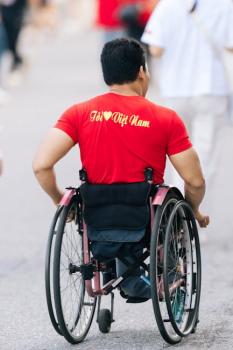Why Black Fathers Should Not Be Seen as a Threat When Supporting Their Children

Why Black Fathers Should Not Be Seen as a Threat When Supporting Their Children
What comes to mind when you see a Black father at a parent-teacher conference? Do you perceive him as engaged or intimidating? Why do societal stereotypes often cast Black fathers as absent or threatening when they actively participate in their children's lives? How can we dismantle these harmful perceptions and create inclusive spaces for all parents?
The Persistent Stereotype of the Absent Black Father
The narrative that Black fathers are largely absent from their children's lives is a pervasive and damaging stereotype. While statistics are often cited to support this claim, they frequently ignore the broader socioeconomic factors at play. Research shows that Black fathers are just as involved in their children's lives as fathers from other racial groups when accounting for income and education levels.
For example, a study by the Centers for Disease Control and Prevention found that Black fathers were more likely than white or Hispanic fathers to bathe, dress, diaper, or help their children use the toilet daily. Yet, media representations and societal biases continue to paint a different picture.
This stereotype becomes particularly harmful when Black fathers engage with schools. Their presence is sometimes met with suspicion rather than appreciation, creating unnecessary barriers to parental involvement.

The School-to-Prison Pipeline and Father Involvement
When Black fathers are perceived as threats in educational settings, it contributes to the school-to-prison pipeline. Teachers and administrators may misinterpret a father's protective behavior as aggression, leading to unnecessary disciplinary actions against both the parent and the child.
Consider the case of a Detroit father who was handcuffed and arrested at his child's school simply for advocating for his daughter's special education needs. Such incidents create a chilling effect, discouraging other Black fathers from engaging with their children's education for fear of similar treatment.
Schools must examine their implicit biases and create protocols that welcome all parents equally. Training staff to recognize and overcome racial stereotypes can help create safer spaces for Black fathers to participate in their children's education.

The Impact on Children's Academic Performance
When Black fathers are discouraged from school involvement, children suffer academically. Research consistently shows that parental involvement is one of the strongest predictors of academic success. By marginalizing Black fathers, schools inadvertently deprive students of a crucial support system.
A study published in the Journal of Family Psychology found that Black children with involved fathers had better cognitive development and fewer behavioral problems. These benefits persist even when controlling for socioeconomic status, demonstrating that father involvement matters beyond financial contributions.
Schools that actively welcome Black fathers often see remarkable transformations. In Chicago, one elementary school created a "Dads on Duty" program that resulted in improved attendance and decreased behavioral incidents simply by making fathers feel valued and included.

Changing the Narrative: Successful Models of Inclusion
Some schools are leading the way in creating inclusive environments for Black fathers. These institutions recognize that changing perceptions requires intentional effort and systemic changes.
Successful strategies include:
- Creating father-specific engagement programs
- Training staff on implicit bias
- Developing clear protocols for parent-teacher interactions
- Celebrating Black fatherhood through school events
- Establishing father mentorship programs
For example, a Brooklyn high school implemented a "Fathers First" initiative that increased Black father participation by 300% in just two years. The program provided flexible meeting times, childcare for younger siblings, and cultural competency training for staff.

What Schools and Communities Can Do
Transforming school cultures to welcome Black fathers requires commitment at multiple levels. Here are practical steps that can make a difference:
For Schools:
- Audit current parent engagement policies for racial bias
- Hire diverse staff that reflect the student population
- Create father-friendly spaces in schools
- Offer multiple communication channels for busy parents
For Communities:
- Support organizations that promote positive images of Black fatherhood
- Challenge stereotypes in media representations
- Create networking opportunities for Black fathers
- Advocate for policy changes at the district level
When schools and communities work together, they can create environments where Black fathers feel respected as equal partners in their children's education.

Moving Forward: A Call to Action
Changing perceptions of Black fathers in educational settings requires sustained effort. It begins with recognizing our own biases and committing to do better. Educators must examine whether their schools unconsciously discourage Black father involvement through policies, practices, or attitudes.
Parents and community members can advocate for change by:
- Documenting and reporting discriminatory incidents
- Participating in school governance
- Sharing positive stories of Black father involvement
- Supporting research on effective engagement strategies
Every child deserves to have all their parents welcomed and valued in their educational journey. By dismantling harmful stereotypes, we create better schools and stronger communities for everyone.







